The majority of the Tuscan town’s 100,000 annual visitors are wealthy “Russians” — a catch-all term applied by locals to Russians and Ukrainians alike. Perhaps surprisingly, the past two summers haven’t resulted in a significant fall-off in visitor numbers either.
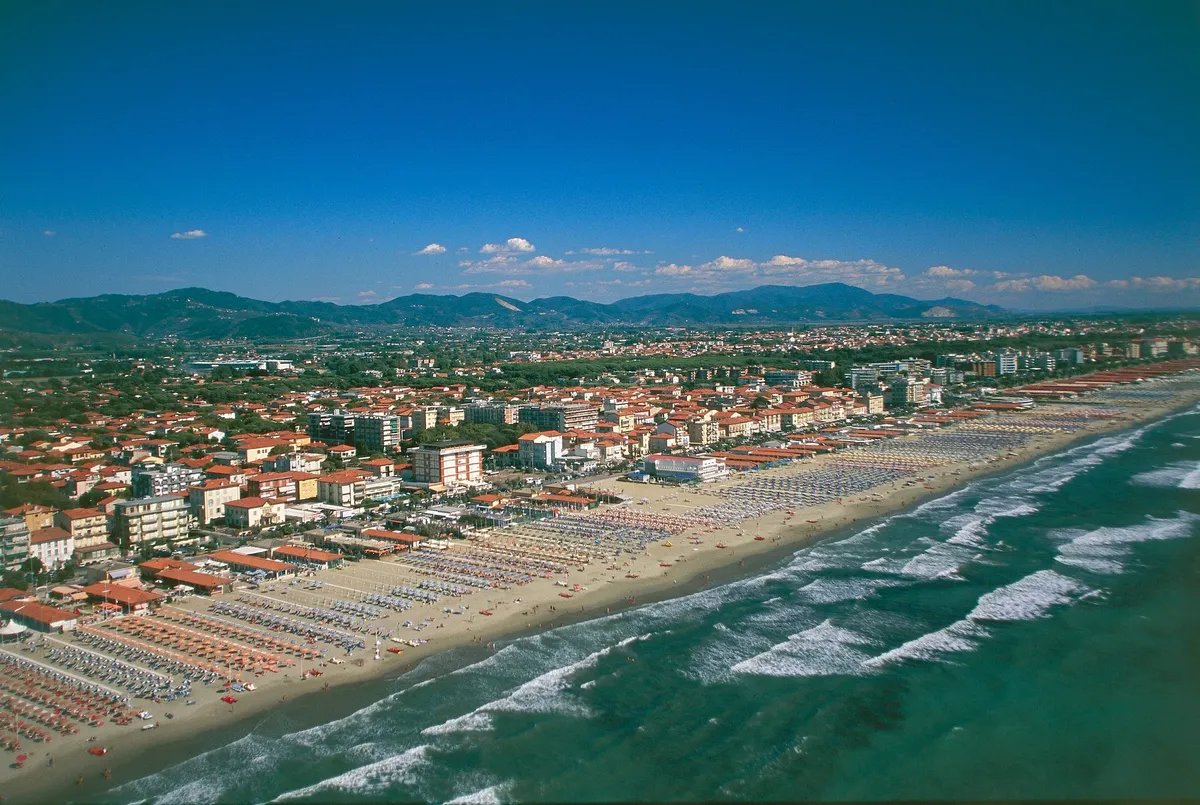
The view of the coast, Forte dei Marmi. Photo: Getty Images
Forte dei Marmi has traditionally been a holiday spot favored by domestic travellers. But that began to change in the early 1990s when the town was discovered by the newly wealthy Russian elite. “We suddenly realised we had been invaded by Russians. There were tons of them around,” says David Vaiani, a local business owner.
By the 2000s, Forte had established itself as a hot spot for rich Russians, although its devotees came not just from Russia, but from all over the former Soviet Union.
Stories of Russians sleeping on golden mattresses and leaving tips the size of average salaries proliferated as the country’s oligarchic elite grew ever wealthier. In 2009, the local media reported that a Russian guest had left a €4,200 tip in a Forte restaurant.
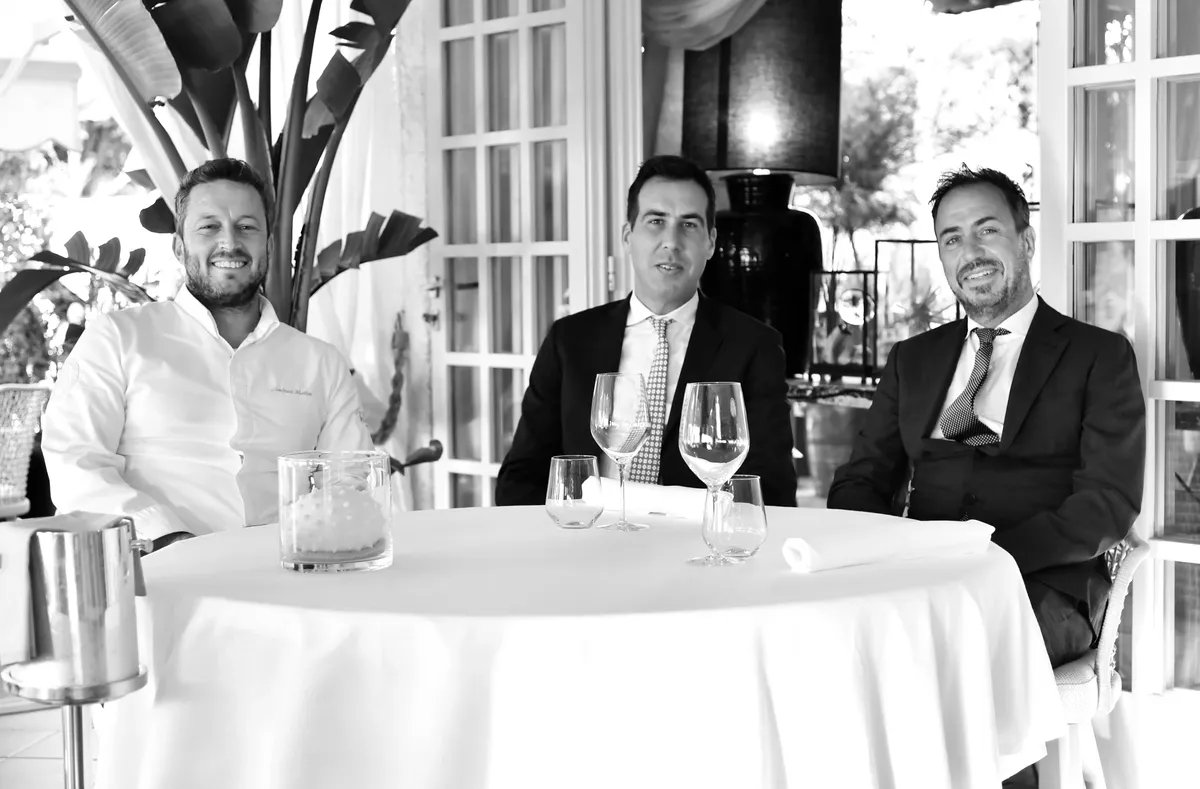
The Vaiani, a family of restaurateurs. Photo from a personal archive
Using open source data, Italian journalists calculated a year later that Russians owned some 2,500 luxury villas in the town. At various times since then, Russian billionaires including Mikhail Fridman, German Khan, Roman Abramovich, Oleg Deripaska, and Oleg Tinkov have all either stayed in the town or visited it from their superyachts.
Last month, investigators at Alexey Navalny’s Anti-Corruption Foundation traced the ownership of a villa in the town worth €3.5 million to relatives of Yevgeny Prigozhin, the founder of the Wagner Group who died in plane crash in August. Just a five-minute walk away is a property that Italian newspaper Il Post reported was bought 15 years ago by Ukraine’s future president Volodymyr Zelensky, then a popular Ukrainian actor.
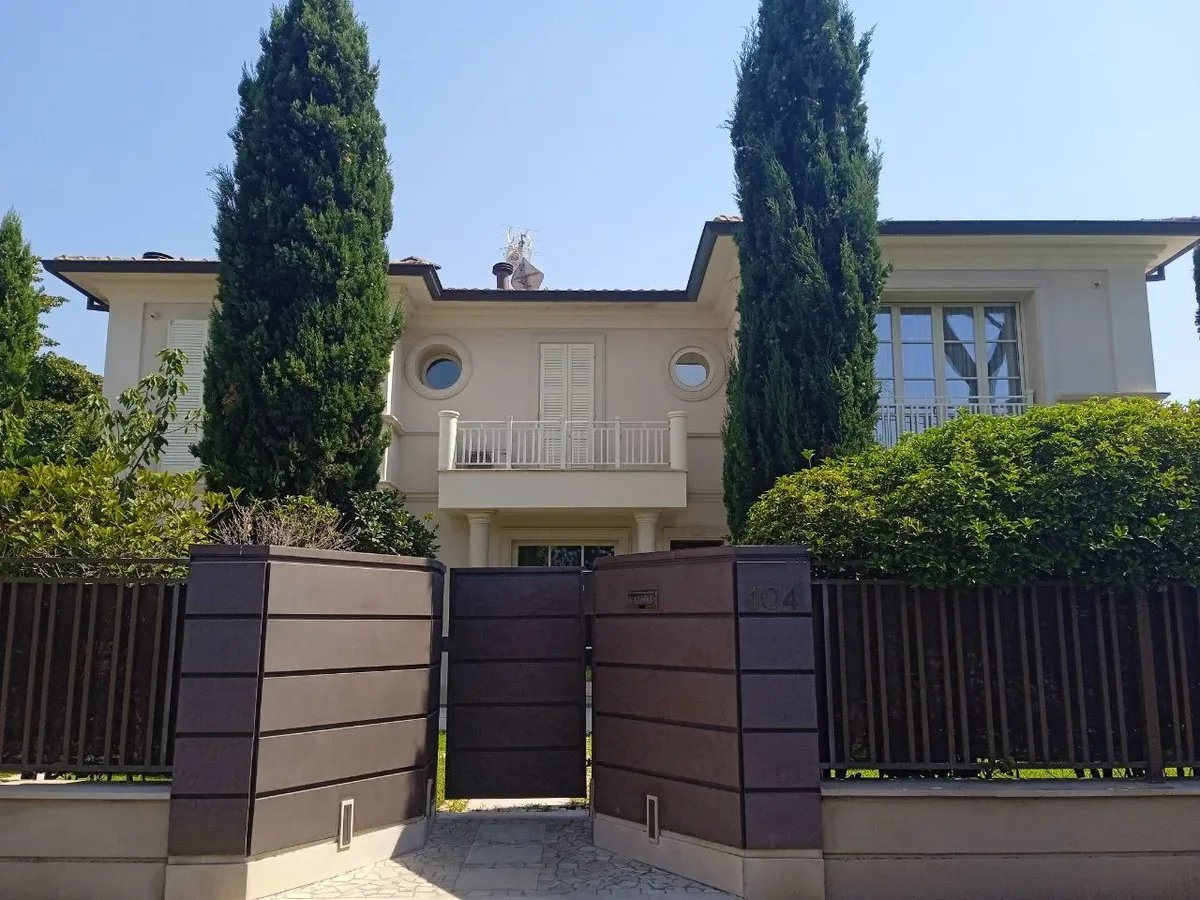
The villa allegedly owned by Volodymyr Zelensky. Photo: Yakov Svyazka
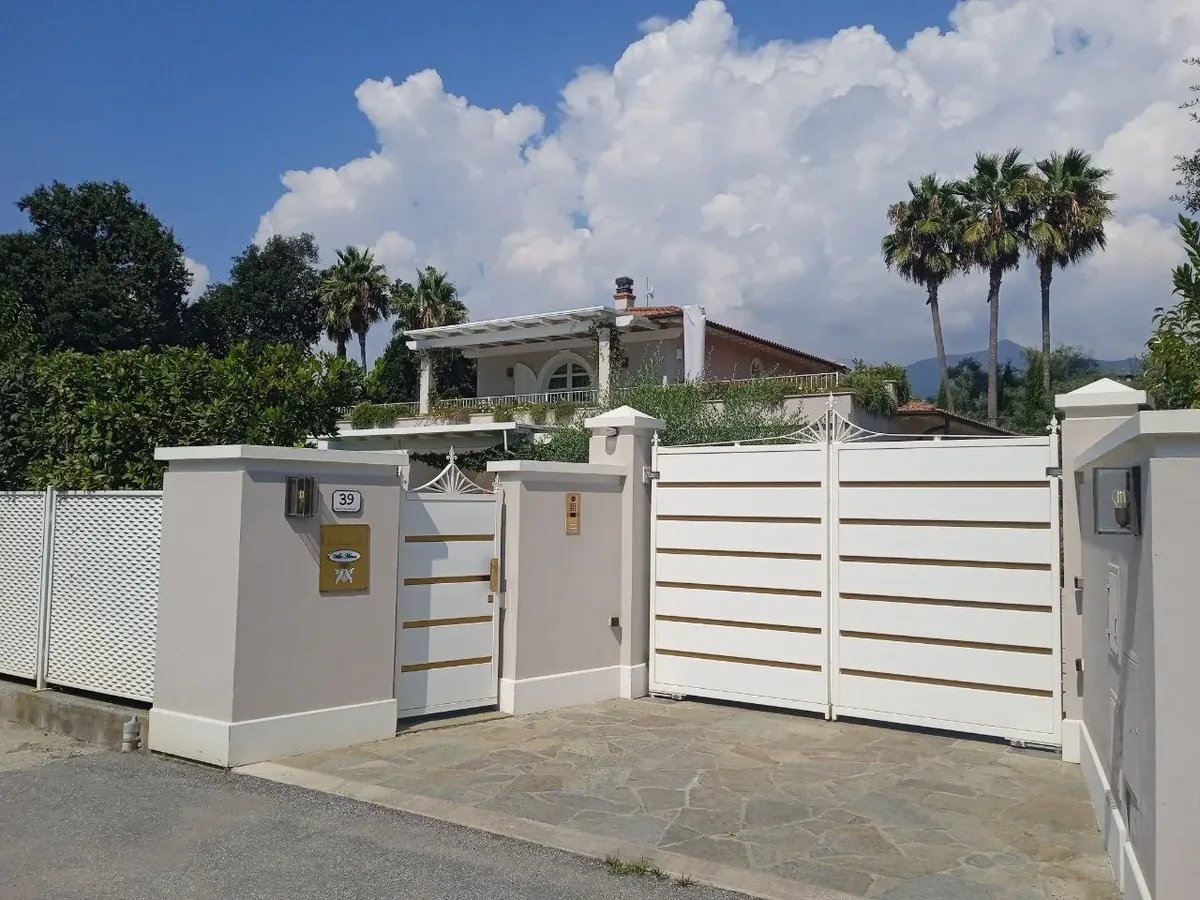
The villa allegedly owned by Prigozhin’s family. Photo: Yakov Svyazka
The majority of local residents didn’t appear to mind that Russians were buying up real estate in Forte, and indeed many felt positively about the town’s change in fortunes.
“A Russian’s house is noticeable from far away, you won’t confuse it for anything else,” says David Vaiani. “It’s the most beautiful one, the most expensive one, with the biggest garden. When Russians buy houses here, they invest four times the amount in them compared to rich Italians. So, this is even better for us.”
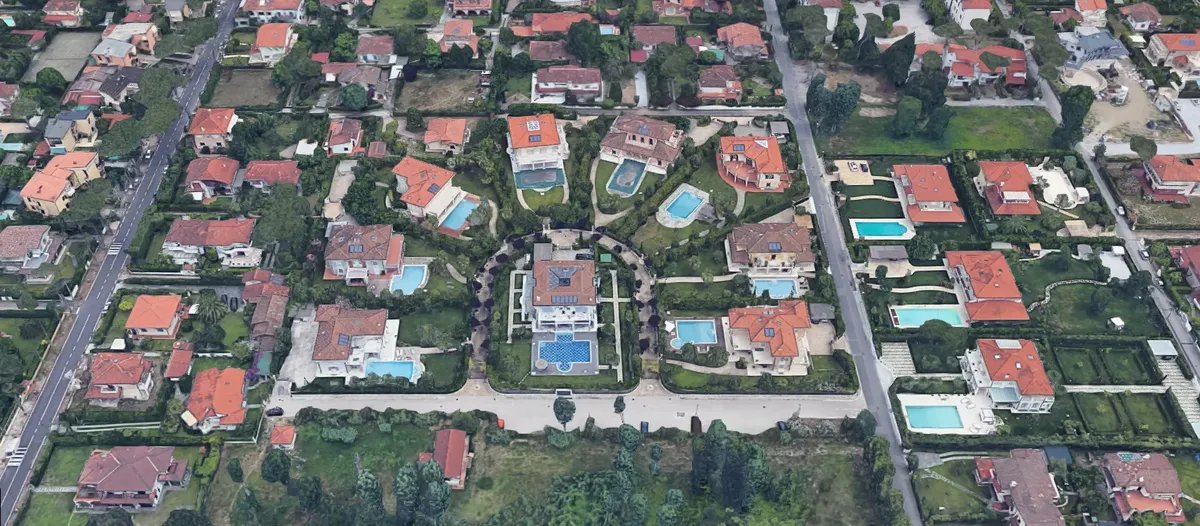
The Vittoria Apuana district of Forte. A swimming pool is an essential requirement for any Russian visitors, according to local estate agents. Screenshot: Earth.Google
Forte dei Marmi remains a visibly Russian enclave even today, with menus and real estate notices often printed in Russian and no shortage of Russian clientele in the town’s bars and boutiques.
Annetta is a luxury beach favoured by wealthy Russians, and despite a beach gazebo for the season setting you back as much as €20,000, there’s never an empty spot available.
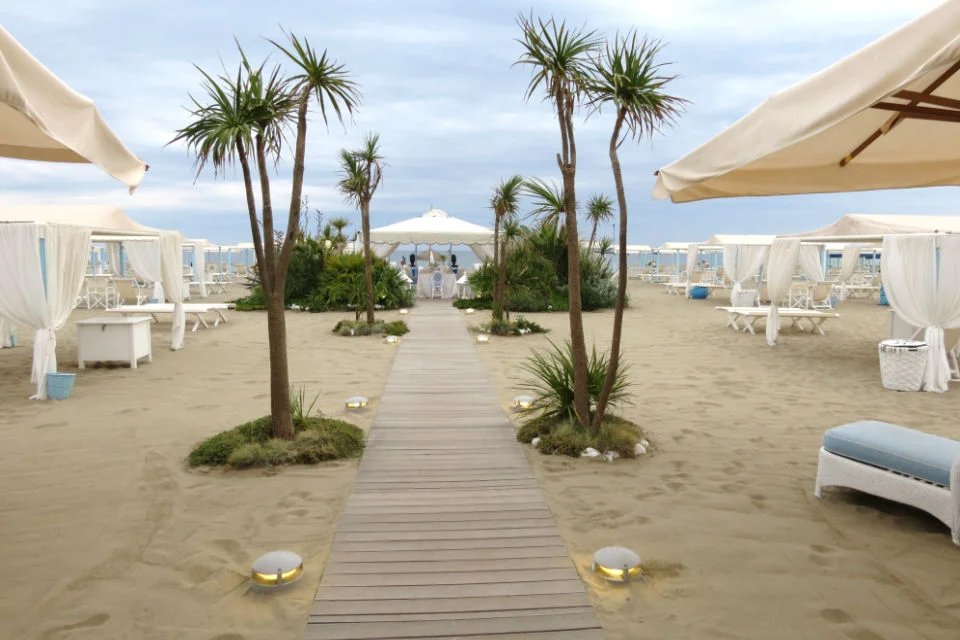
The Annetta beach. Photo: bagnidelforte.it
Owner Carmela Pampaloni tells me that 30 of the 82 beach gazebos are currently occupied by “Russians”, though she admits that the Russian clientele decreased significantly during during the 2022 season following the full-scale invasion of Ukraine. Many customers initially had issues making payments due to sanctions, Pampaloni says, but these subsequently began arriving from third countries such as Cyprus, the Cayman Islands, and Thailand.
Russians not only had to use foreign bank accounts to pay their bills, they also had to find new ways of reaching Italy via Turkey or the United Arab Emirates using their second passports, Pampaloni says.
“One client told me that she had ended up in a very tight spot and had to pack up within one day. She took everything she owned, collected some cash, and flew to Dubai, where she fortunately has an apartment. From there she had to book a private jet to Pisa. She landed and immediately came here,” Pampaloni recounts.
Forte dei Marmi could have lost around €20 million over the Easter holidays alone had Russian visitor numbers collapsed in the wake of the war, estimates one local tourist association. However, by the end of summer 2022 “Russian” tourism in Forte had seen a revival as Russians and Ukrainians once again rubbed shoulders under neighbouring beach umbrellas, staying in villas that cost as much as €250,000 per month or on yachts that cost €50,000 per day.
Although there are now fewer “Russians” in the town, for the most part it was middle class and one-off visitors who didn’t return, rather the wealthy Russian families who have poured huge amounts of cash into the local economy.
“Our clients haven’t gone away. We are not facing any problems,” says a saleswoman in one of Forte’s most expensive boutiques who seems slightly bewildered by the question.
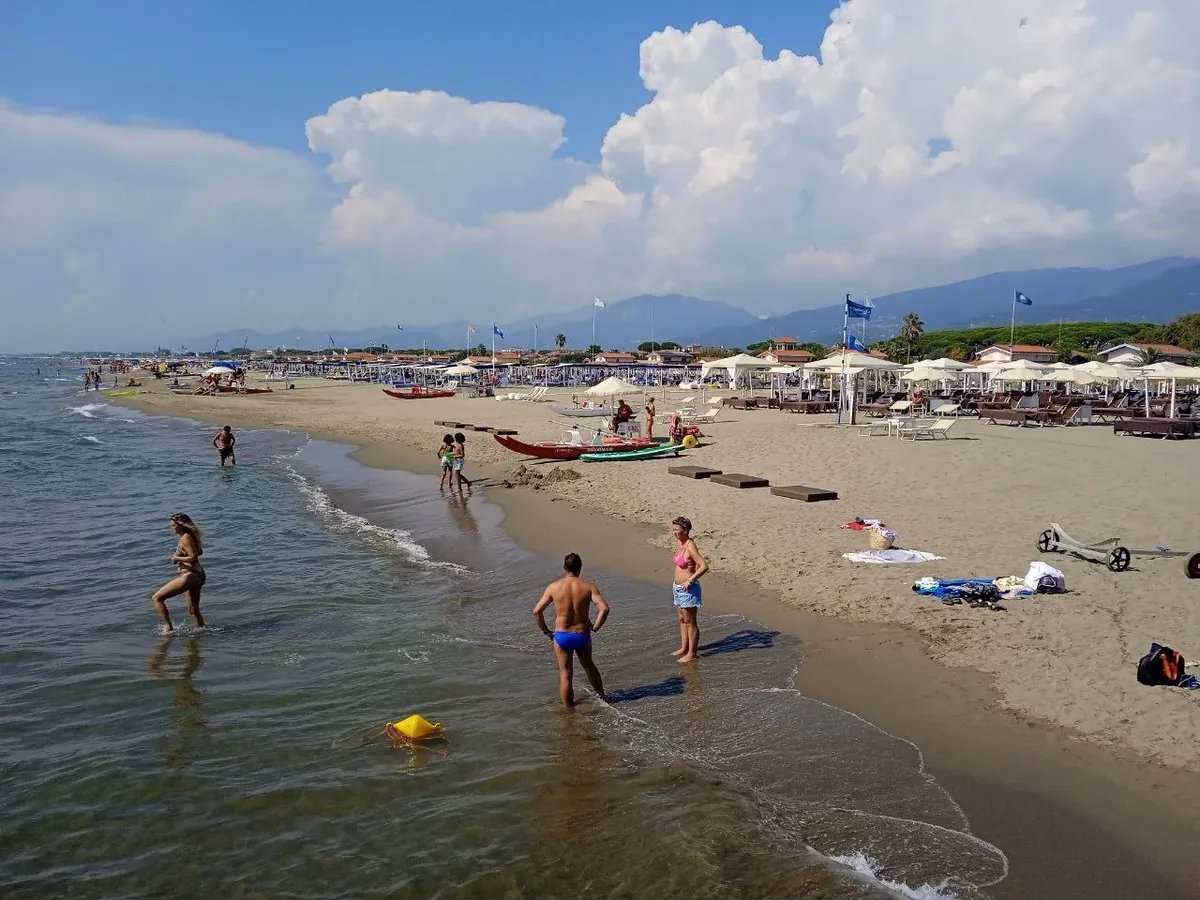
Private beaches in the centre of Forte dei Marmi. Photo: Yakov Svyazka
I ask Valentino, a manager in the Principe restaurant, whether he’s bothered by the continued Russian presence since the start of the war. The answer I get is as diplomatic as you’d expect. “This is such a delicate issue! As an establishment for tourists, we try to stay out of politics”.
It feels pointless asking anyone in Forte’s glitzy downtown their stance on Russian visitors — I get smiles and kind replies almost everywhere I go.
“The locals have a good view of them, even after the start of the war. It’s easy: Russians spend money,” says a young man from a neighbouring town who is in Forte on business.
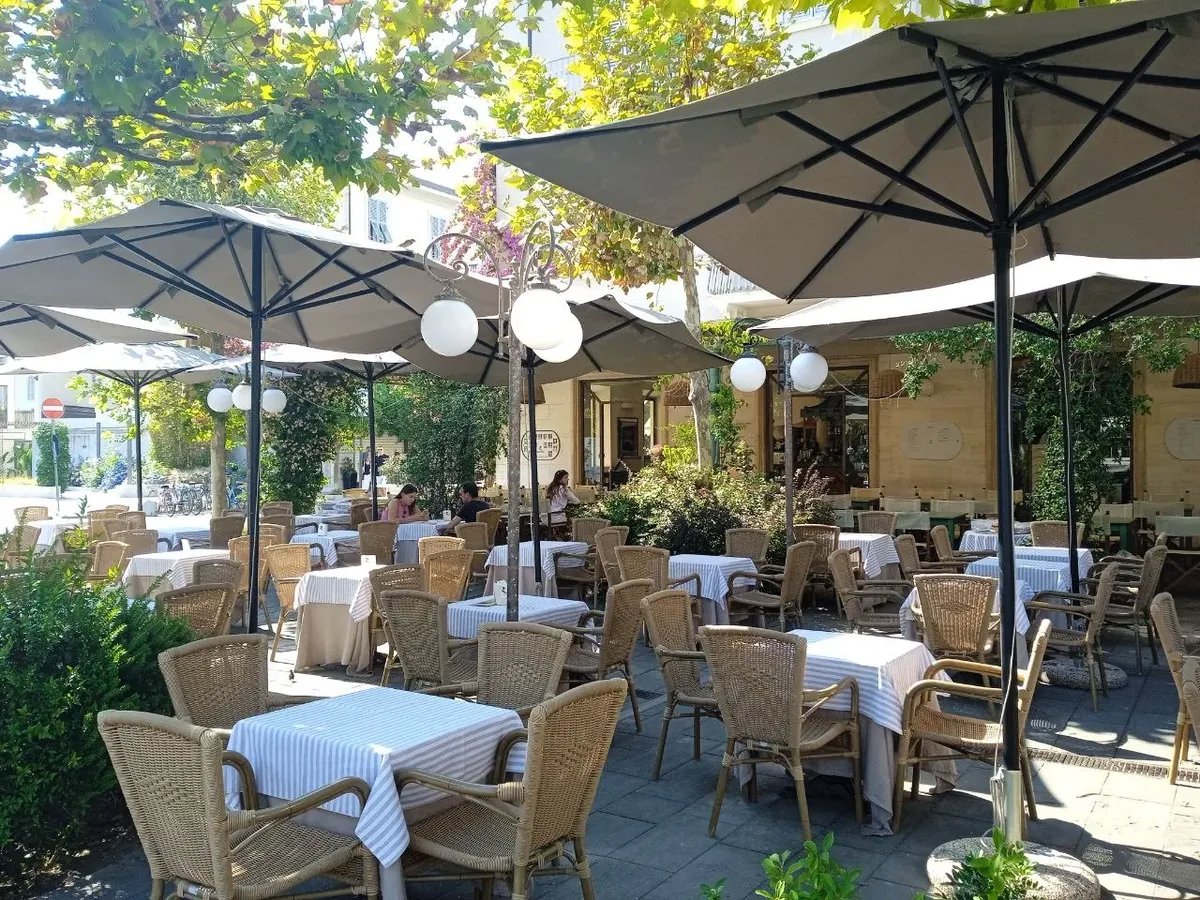
A cafe on Forte dei Marmi’s main piazza ahead of the evening rush. Photo: Yakov Svyazka
However locals really feel, Forte dei Marmi continues to profit from Russian tourism, as it has done for the past 20 years. The knock-on effect of local business owners being unwilling to rock the boat and professing to stay out of politics is that even members of the Russian elite with close Kremlin ties are being let off the hook and allowed to carry on with their lives in considerable luxury as if nothing has happened.
“The war is not a concern for the people who come here. They’re only getting richer — both Russians and Ukrainians. As is the case in any war, only the poor are becoming poorer,” a harried waitress tells me. “Everything is going swimmingly for the rich.”
Join us in rebuilding Novaya Gazeta Europe
The Russian government has banned independent media. We were forced to leave our country in order to keep doing our job, telling our readers about what is going on Russia, Ukraine and Europe.
We will continue fighting against warfare and dictatorship. We believe that freedom of speech is the most efficient antidote against tyranny. Support us financially to help us fight for peace and freedom.
By clicking the Support button, you agree to the processing of your personal data.
To cancel a regular donation, please write to [email protected]

